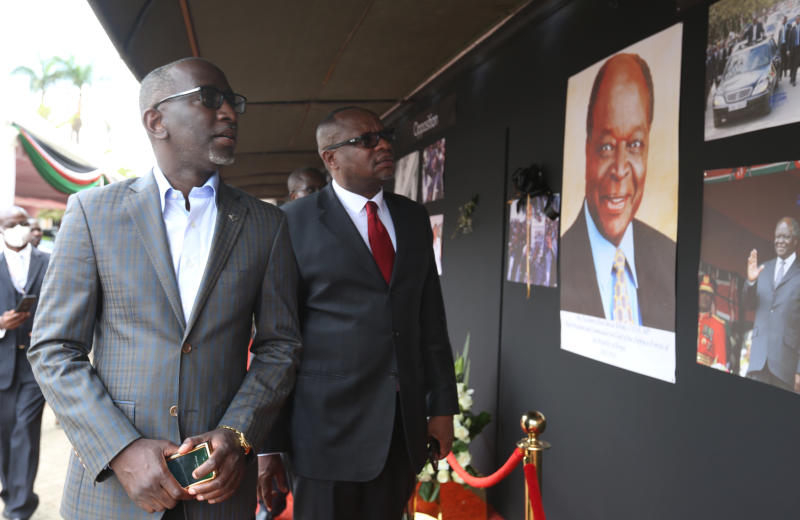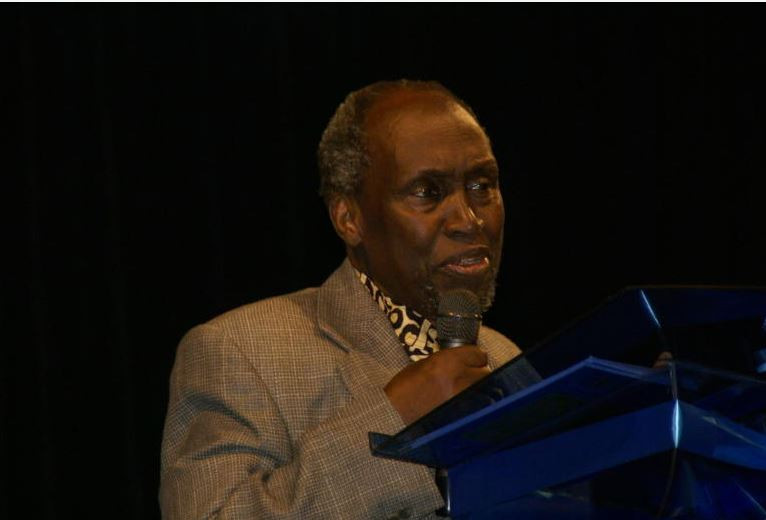Motivational speaker Robert Burale (left) and Bishop David Muriithi of House of Grace, Nairobi look at Kibaki's memoirs during day two of the public viewing of body of the late former President Mwai Kibaki at Parliament buildings, Nairobi on April 26, 2022 [Elvis Ogina, Standard]
×
The Standard e-Paper
Kenya’s Boldest Voice







